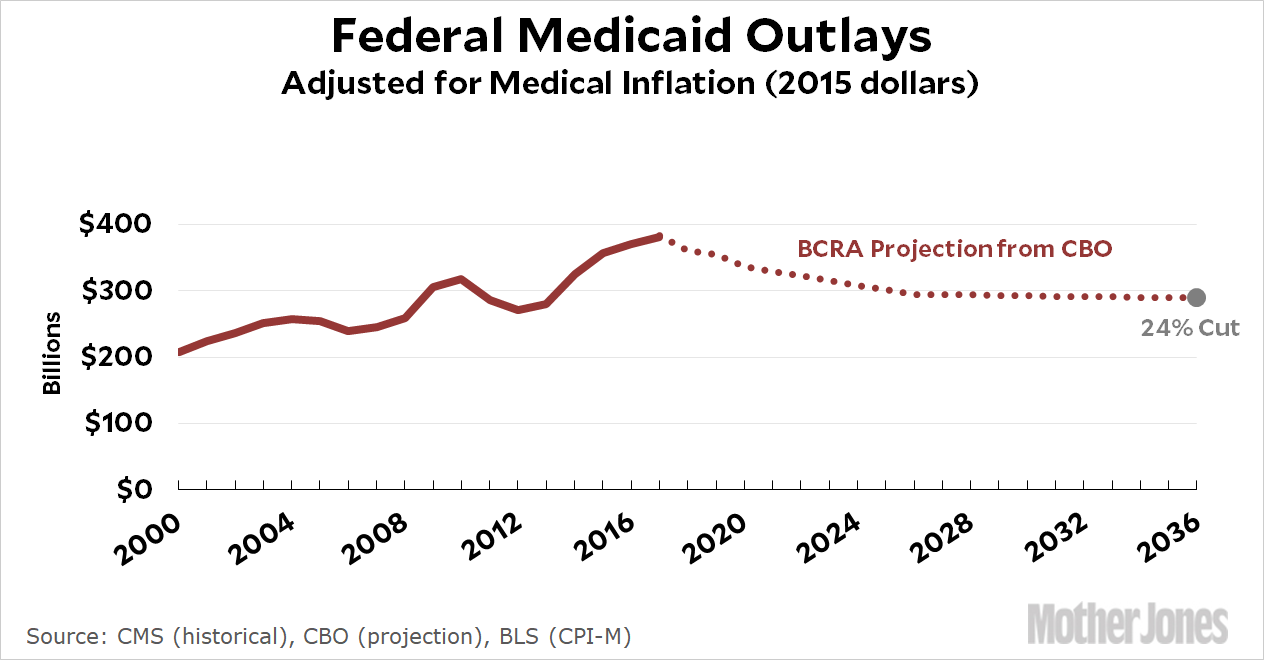The CBO has released its long-term analysis of Medicaid spending under the Republican health care bill (BCRA), which means I can now update my chart with the most official numbers we have. But it wasn’t easy. CBO, bless their black little hearts, doesn’t provide spending in nominal dollars because “in the agency’s judgment, a presentation in nominal dollars can be misleading.” They are absolutely correct about that, but it’s a pain in the ass when you actually want nominal dollars so you can deflate them.
Luckily, CBO lets the cat out of the bag in the first paragraph, estimating that Medicaid spending under BCRA will grow 3.5 percent per year from 2026 to 2036. I can back out nominal dollars from that. They also estimate that medical inflation will average 3.7 percent, not 3 percent, so I can update my chart with that too. Here’s the result:

Surprised? I am. But CBO estimates that most of the damage of the Republican bill would happen in the first decade, when real spending would decrease about 1.8 percent per year (that’s growth of 1.9 percent compared to inflation of 3.7 percent). In the second decade, real spending would decrease about 0.2 percent per year (growth of 3.5 percent compared to inflation of 3.7 percent). In total, real spending would decline about 24 percent over the next two decades, which probably means that enrollment would be forced down about 24 percent too.
POSTSCRIPT: A note to fellow progressives. CBO normally presents spending numbers in comparison to its “baseline” projections of future spending. In chart form, what you see is a line going sharply up (the baseline) and another line going up at a slower rate (spending under BCRA). Please stop using charts like this.
All this does is play into the Republican narrative that BCRA is merely “restraining the rate of growth of Medicaid.” But BCRA does worse than that. In real terms, it actually cuts spending. However, you can only see that if you ditch the baseline and just chart out actual spending projections adjusted for medical inflation.
Ditch the baseline, folks.

















